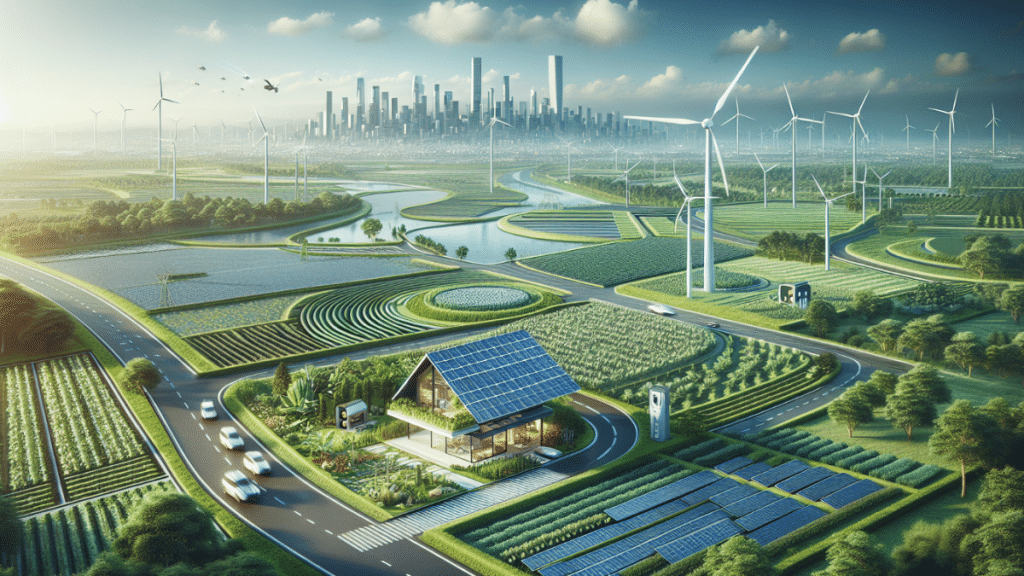Imagine living in a home that not only shelters you but also takes care of the planet by saving energy. Believe it or not, it’s no longer just a far-off dream, and the key to this sustainable lifestyle lies at our fingertips with the advent of smart technology. Take the humble thermostat, for example—it used to be a simple device, but now smart thermostats can learn our schedules and preferences, adjusting the temperature to conserve energy when we’re not at home. What about lighting, you may ask? Modern smart lighting systems can be programmed or even be motion-activated, ensuring that no watt of electricity is wasted. But while we transition to our high-tech, eco-friendly abodes, let’s not forget to create strong passwords to secure our virtual entryways; it’s essential to ensure that the only ones controlling our green homes are us, the homeowners.
Harnessing the power of renewable energy
Renewable energy is no longer just for the eco-conscious minority; it’s becoming a practical option for all. Reducing our carbon footprint might seem daunting at first, but integrating solar panels or a wind turbine can lead to significant energy savings, and as time moves on, to financial savings too. Think of the stories from around the world where entire towns have gone green, setting examples for us to follow. Advancements in technology further propel this shift—batteries capable of storing solar energy to power our homes at night or even feed back into the grid are becoming more mainstream. Friendly government policies with subsidies and incentives are sweetening the deal, making it easier for people to take the plunge into clean energy.
Revolutionary tech transforming modern agriculture
Agriculture has evolved beyond traditional practices, experiencing a tech revolution focused on precision and sustainability. Drones capture detailed field data, aiding farmers in making precise decisions for better harvests. AI predicts crop issues in advance, becoming a modern farmer’s tool. Sustainability is prioritized with advanced water conservation and soil health methods, ensuring both current and future generations are nourished while preserving resources.
Navigating the shift to electric vehicles
Traditional engines’ roar is making way for the quiet hum of electric vehicles (EVs), now a common part of transportation. EVs have benefits like regenerative braking, recharging the battery as you drive. Real stories of people switching to EVs highlight reduced environmental impact and the thrill of driving these zippy machines. The growing network of charging stations is a plus for potential EV owners.
Building the smart cities of tomorrow
As we step into the future, our cities are not just growing but getting smarter. Smart cities thrive on interconnected infrastructure, promoting efficiency and reduced resource consumption. Picture smooth traffic flow from integrated transportation systems and buildings managing energy through IoT. Public services become interactive, with apps offering real-time updates and online platforms connecting communities with city councilors. The future envisions cities where technology silently nurtures urban spaces into hubs of sustainability and convenience.
